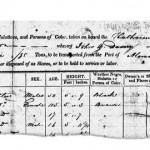Review Homeowners, Renters and Auto Policies Before Heading Off to Campus
NEW YORK, Aug. 18, 2015 — Before your college student heads off to campus, it is a good idea to review your insurance policies to make sure their personal possessions are adequately covered, according to the Insurance Information Institute (I.I.I.).
The I.I.I. recommends starting with the following steps:
1. Contact Your Insurance Professional: Find out how much coverage your homeowners or renters insurance policy will provide for your child’s personal possessions if they are living in a dorm. Are they planning to live off-campus? Then look into purchasing a renters insurance policy.
2. Create a ‘College Inventory’: Compile a list of items the student plans to bring to school, along with the estimated value. Having an up-to-date inventory can facilitate the claims filing process in the event of theft, fire or other types of disasters. If you are using the I.I.I.’s free home inventory tool, available at KnowYourStuff.org, it will allow you to easily create a separate list of items that are being moved to the student’s dorm room or apartment.
Most homeowners and renters policies include protection for a college student’s personal possessions (e.g., a TV, clothing and furniture) away from home, if they live on-campus. Some policies may limit the amount of coverage to 10 percent of the total amount of the policy’s overall coverage for personal possessions. The terms of the coverage would be the same as for the primary home or renters policy, providing protection from perils such as theft or fire—and like a traditional home insurance policy, mishaps such as spilling coffee on a computer are not included! Items such as jewelry, expensive sports equipment and musical instruments may be subject to dollar limits under standard homeowners and renters policies. If your child is planning on playing a sport or participating in an orchestra they may need additional coverage to protect their equipment or instruments, so consider acquiring a floater or endorsement. These stand-alone insurance policies provide both higher amounts and broader coverage—for instance “mysterious disappearance,” which means that even if the item is simply lost, you may be able to file a claim. It may be best, however, to leave expensive jewelry at home or store it in a safe deposit box for safe keeping.
Other Coverages to Consider
Auto Insurance: If the student has been driving the family car and will now be away at college (at least 100 miles from home) let your insurance company know. You may be eligible for a discount on your auto insurance. Many auto insurers also give a discount to students who maintain good grades at school, usually at least a 3.0 grade point average. And if the student is taking a car away to school, be sure to let your insurance company know that the vehicle will now be kept in another location.
Tuition Insurance: This coverage refunds a portion of semester tuition and on-campus room and board when a student withdraws at any time during a semester due to a covered medical reason, including emotional, nervous or mental disorders or the death of the student.
RELATED LINKS
Video: Test Your Insurance IQ: College Students
Consumer Information: Homeowners and Renters Insurance: www.iii.org/insurance-topics
The I.I.I. has a full library of educational videos on its You Tube Channel.
THE I.I.I. IS A NONPROFIT, COMMUNICATIONS ORGANIZATION SUPPORTED BY THE INSURANCE INDUSTRY. www.iii.org









